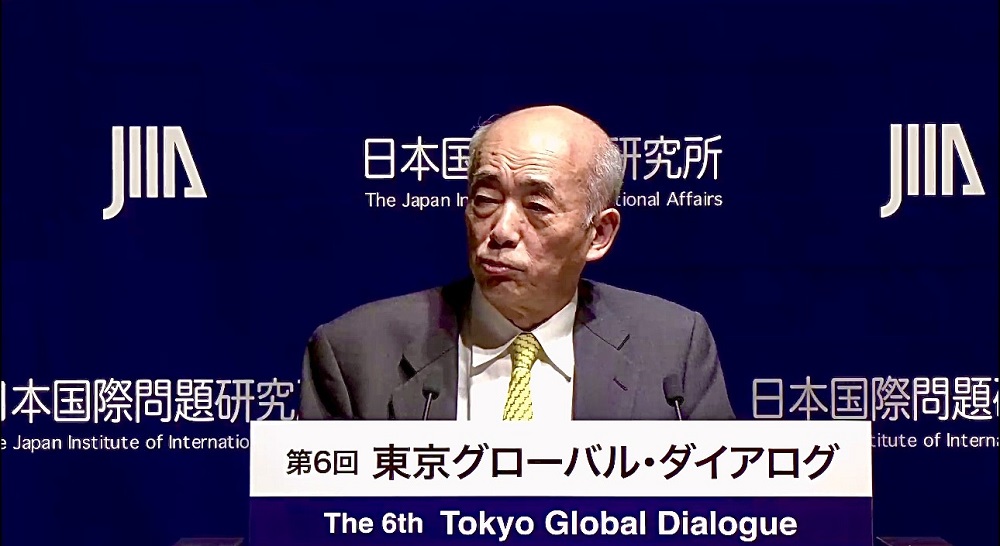
- ARAB NEWS
- 01 Aug 2025

TOKYO: Japan hosted the 6th Global Tokyo Dialogue on Wednesday and the first session tried to make sense of what can be expected from the new administration of President Donald Trump.
SASAE Kenichiro, a former Ambassador to the United States and President of the Japan Institute of International Affairs that is organizing the forum, started with a note of caution: “We, the nations of the free world, must always keep in mind who will benefit if we continue to fight among ourselves. I believe we have reached a stage where leaders of each nation must decide to set aside minor differences and come together. This is a crucial historical turning point.”
Randall Schriver, former US Assistant Secretary of Defense for Indo-Pacific Security Affairs, said that the US government’s pivot to Asia and particularly China goes back to the Obama administration.
Trump’s first term as president, he said, was about “posturing for long-term competition with China,” particularly in defense and upholding the “free and open order.” The new administration is equally hawkish, he believes, and so he doesn’t expect any great change in policy in that area.
He says it’s “a very traditional group when it comes to placing high value on alliances and partnerships and thinks very traditionally about the need to cooperate with allies and partners on any endeavor, but particularly when it comes to major efforts like deterrence related to China.”
Taiwan, he says, is a different issue: “I think there are a lot of questions about how the administration will support Taiwan again. I think one thing we can say with confidence is it’ll be a very permissive environment for security assistance. Trump 1.0 sold more arms to Taiwan in four years than any previous administration since 1979, including those that were two terms, eight years.”
However, he believes that Trump’s policies will be ambiguous, playing both sides of the fence. “But I think what we can expect to see is security assistance,” he added. “And some expectation that Taiwan will do more for itself. I think Taiwan understands there’s going to be more expected in terms of resilience in terms of their own investment in their future force and that conversation is already well under way.”
Long Ke, a Japan-based Chinese-born professor, says the world is being confronted by “three troublemakers”: Trump, Chinese President Xi Jinping and Russian President Vladimir Putin.
Xi, he says, is facing a “deteriorating economy” with little prospect of recovery and further decline likely. This, he added, is leading to domestic unrest.
Diplomatically, he says China is still close to Russia, but the relationship is delicate, while China’s relations with Japan seem to be improving.
As for Taiwan, he believes that China will lose out if it invades Taiwan, as it relies on the outside world for oil and food. “The Chinese economy would not survive if there is any Taiwan contingency,” he says, adding that foreign companies would soon leave.
Prime Minister ISHIBA Shigeru attended the 6th Tokyo Global Dialogue and agreed that the world is facing severe situations that threaten peace and stability, pointing out Russia’s aggression against Ukraine, turmoil in the Middle East, and the severe security environment in Northeast Asia, including North Korea’s nuclear and missile activities.
Under these circumstances, he stated, Japan will make efforts to strengthen the Free and Open Indo-Pacific through enhancing deterrence, further developing the Japan-US Alliance, expanding and deepening cooperation with allies and like-minded countries, and building a multi-layered network of security in the region.